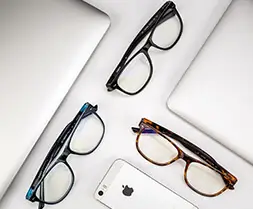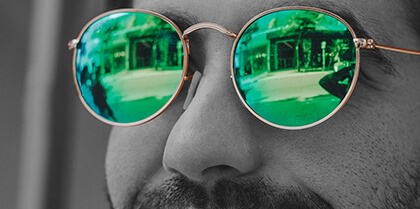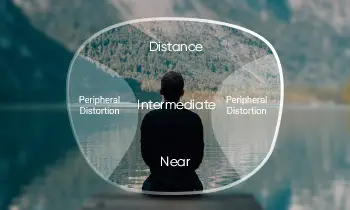The COVID-19 pandemic has had a profound impact on our lives, and it has changed the way we think about our health and well-being. With the pandemic continuing to be a concern, it's more important than ever to prioritize our health, including our eye health. This article will provide tips for maintaining good eye health after COVID-19.
1. Schedule an Eye Exam
Routine eye exams are essential for maintaining good eye health, and they can help detect eye conditions before they become more severe. During an eye exam, your doctor will evaluate the health of your eyes, screen for eye diseases, and check your vision. Suppose you've delayed your regular eye exam due to the pandemic. In that case, it's essential to make an appointment with your eye doctor to ensure that your eyes are healthy and to catch any potential issues early on.
2. Wear Eye Protection
If you're out in public or working in a high-risk environment, it's essential to wear eye protection to help reduce the risk of infection. Respiratory droplets can be a source of COVID-19 transmission, and wearing safety glasses, goggles, or face shields can help protect your eyes from exposure. It's especially important to wear eye protection if you're in close contact with people who are coughing, sneezing, or talking.
3. Practice Good Hygiene
Practicing good hygiene is essential for protecting yourself and others from COVID-19. When it comes to your eyes, make sure to wash your hands before touching your eyes, face, or contact lenses. Avoid rubbing your eyes, as this can increase the risk of infection. If you wear contact lenses, make sure to follow proper hygiene practices, including washing your hands before handling them, disinfecting them regularly, and replacing them as recommended by your eye doctor.
4. Take Breaks from Screens
Since the pandemic has forced many of us to work and socialize from home, we're spending more time in front of screens than ever before. This increased screen time can lead to digital eye strain, which can cause symptoms like dry eyes, headaches, and blurred vision. To reduce the risk of digital eye strain, take frequent breaks from screens and practice the 20-20-20 rule: every 20 minutes, look away from your screen at an object 20 feet away for 20 seconds. Additionally, consider adjusting the brightness and contrast of your screens to reduce eye strain.
5. Follow a Healthy Lifestyle
Maintaining a healthy lifestyle is critical for overall health and well-being, including eye health. Eating a balanced diet rich in nutrients like omega-3 fatty acids, vitamins C and E, and zinc can help protect your eyes from age-related macular degeneration and other eye diseases. Regular exercise can also improve blood flow and reduce the risk of eye conditions like glaucoma. Getting enough sleep is also essential, as sleep deprivation can lead to eye fatigue and other eye-related issues.
In conclusion, by following these tips for maintaining good eye health after COVID-19, you can protect your eyes and reduce the risk of eye-related issues. Remember, if you experience any changes in your vision or have concerns about your eye health, make an appointment with your eye doctor right away. By prioritizing your eye health, you can maintain good vision and overall health for years to come.



































